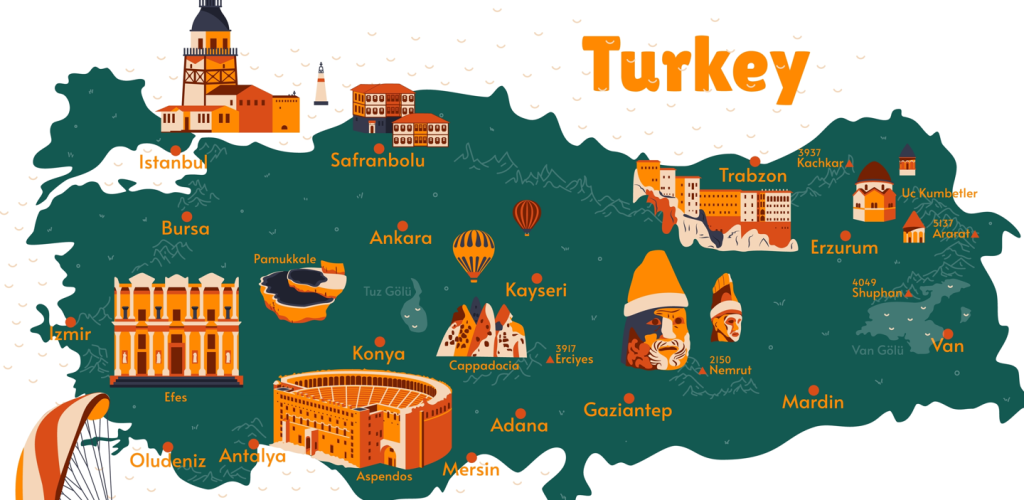Turkey’s payment card market stands
out as one of the most dynamic and forward-thinking in Europe,
thanks to its unique issuing and acquiring structure. Mehmet Sezgin, CEO of Garanti Payment
Systems, looks at some of the most recent payment trends in the
country.
The economic crisis has placed a
strain on many industry sectors, not least of all the banking and
finance industry. Despite these challenging times, the global cards
market has been witnessing continuous growth, especially in the
area of smart card innovation.
The world as a whole is seeing an increase in
the number of smart card projects across all geographical
locations, which is testament to the flexibility and robustness of
the technology. Driving its uptake is a need for a more flexible,
fast and secure payment method.
According to the Smart Card Market Forecast to
2012 report from global research consultancy RNCOS, the global
market of contactless smart cards is expected to grow 33 percent by
2012(1).
In addition, debit cards are the primary
payment method of choice across Europe. Only the UK, Ireland and
Turkey have a substantial credit card market.
How well do you really know your competitors?
Access the most comprehensive Company Profiles on the market, powered by GlobalData. Save hours of research. Gain competitive edge.

Thank you!
Your download email will arrive shortly
Not ready to buy yet? Download a free sample
We are confident about the unique quality of our Company Profiles. However, we want you to make the most beneficial decision for your business, so we offer a free sample that you can download by submitting the below form
By GlobalDataWhile the current recession has not left the
Turkish economy unscathed with unemployment figures increasing over
the past 18 months, it has suffered less than others due to lessons
learned from the 2001 crisis.
This crisis cost Turkish taxpayers $27.1
billion – which is equivalent to 9.6 percent of Turkey’s average
gross domestic product (GDP) during that period(2) – and as a
result, the country saw the introduction of higher capital
liquidity ratios for banks.
Due to this, Turkey is now in a strong
position as a continually emerging economy to offer one the of the
most dynamic card markets across the globe. The outlook for the
next few months is set to be even more optimistic, as exports and
private consumption and spending are expected to go back to
pre-credit crunch levels.
The changing world of payments in
Turkey
A distinct difference of the Turkish
card market compared to other European markets is its holistic view
of issuing and acquiring. Banks that combine both the issuing and
acquiring business avoid losing transactions.
A transaction only takes place if the merchant
and cardholder come together. By gelling issuing and acquiring
together, banks can provide customer relationship management (CRM)
services to smaller merchants that cannot afford to invest in their
own CRM systems.
This synergy means that banks have only one
customer file, which gives the sales team a more comprehensive view
of the clients’ activity. As a result, this holistic approach
provides much better results for banks and merchants in terms of
straight-through processing.
More recently the number of credit cards in
Turkey has increased drastically. While the increase in volume is
good, it has also created new problems – such as the high levels of
interest charged on the cards.
To control this trend and in line with the
growing numbers of cards circulating, new regulation has recently
been introduced. Turkey’s Central Bank implemented new guidelines
on the limit on how much interest can be charged, such as maximum
APR caps.
Despite its objective of protecting consumer
interests, it has been challenging for banks to produce financial
forecasts and budget accordingly.
As a result of the high unemployment rates in
Turkey, which peaked at 16 percent in February 2009(3) and steadily
fell down to 13 percent as of October 2009, banks have had to
develop systems to control and collect debt with specific payment
plans for their customers.
While banks have made substantial efforts to
support their customers, the Turkish government also passed a law
to standardise the banks’ repayments plans.
Turkey at the forefront of card
innovation
Turkey, as with many countries, is
not a cashless society and in recent years it has seen the number
of bank cards in general increase. Along with this trend, the
country has also witnessed the demand for contactless rise
steadily.
 As
As
an emerging economy, the number of people without a bank account is
still higher than in many Western European countries and as a
result contactless cards are an attractive alternative to cash for
many consumers in Turkey. To enable consumers to use contactless
cards in the mainstream, agreements were signed with many fast food
outlets and coffee shops around the country.
Garanti Payment Systems (GPS) was the first
issuer of contactless PayPass cards from MasterCard. The
contactless programme was then extended to include the bank’s
existing BONUS Trink cardholders, a loyalty scheme that soon
established itself as the basis of many loyalty card schemes – not
just for banks, but also retailers in Turkey, following its
introduction in 2006.
Since then, MasterCard and GPS announced the
launch of Europe’s first watch equipped with MasterCard PayPass
contactless technology, introducing the next level of contactless
payments in the region to make paying for small-value items quicker
and more convenient.
Using this technology, consumers simply tap
their new watch, sticker or keyfob on a PayPass reader to make the
equivalent of a credit card purchase at nearly 15,000 point of sale
terminals in Turkey, including major names such as Burger King and
Starbucks.
Driving and shaping the adoption of
contactless in Turkey is the country’s young demographic, who make
up a large proportion of the country’s population. This demographic
is far more technology-savvy and the take up of contactless
technology has been higher in this group.
With credit cards having deeply penetrated
daily life, younger generations have happily adopted contactless
cards to pay for low-value items. In addition, in a world where
personalisation and customer loyalty has become crucial, Turkey
spearheaded the customer relationship manager era for credit cards
with the launch of GPS’ Flexi card, a credit card with highly
flexible features.
The card allows cardholders to create a
personalised card including its own interest rate, reward system,
fee and personalised design. In addition, loyalty points are
awarded based on the frequency of use of the card, rather than
spending, and there is no expiration date for the extra points.
Flexi is globally the first credit card that
involves the customer in the process of the full creation of the
card, establishing greater customer loyalty by giving customers
more control over their credit cards.
With the introduction of the loyalty schemes
in Turkey, local banks have realised that loyalty programmes are
crucial for the existence of the market and play an important role
in the penetration of card usage.
Looking ahead, the Turkish banking market will
see the emergence of bank cards that combine debit, prepaid and
contactless functionalities in one card. These cards will allow
consumers to pay for low value items as well as their travel passes
in regions that have signed up for the scheme.
While Turkey is a major player in the cards
market, it is still suffering from the current economic crisis.
This, coupled with fierce competition between Turkish banks,
emphasises the constant need for innovation.
The uptake of contactless and introduction of
new flexible offerings such as combined debit, contactless and
prepaid and loyalty schemes will be critical in allowing banks to
maintain and increase their market share.
Those banks that place the customer at the
centre of all their decisions and offer loyalty programmes along
with ease of purchase will stand a greater chance of succeeding and
enhancing consumer spending, especially important when times are
hard.
With this in mind, the Turkish economy looks
set to be on the best course for recovery and poised to take
advantage of new opportunities as it begins to look beyond the
recession.
(1) http://www.rncos.com/Report/IM007.htm
(2)
http://www.todayszaman.com/tz-web/yazarDetay.do?haberno=149978
(3)
http://www.asbarez.com/2009/05/17/turkey-unemployment-hits-record-high-of-16-percent/
Mehmet Sezgin, CEO of Garanti
Payment Systems
 Mehmet Sezgin
Mehmet Sezgin
graduated from the Business Administration Department of the Middle
East Technical University and obtained his MBA degree from the
University of Massachusetts. He worked at various private banks and
at MasterCard Europe. Sezgin has been serving as CEO of Garanti
Payment Systems since 1999.
He is a board member of Garanti Emeklilik ve
Hayat Afi, president of MasterCard Southern Europe Forum, a board
member of MasterCard Europe Coordination Committee’s, president of
MasterCard in Turkey and supreme board member of Visa Turkey.
About Garanti
Bank
Garanti Bank is Turkey’s
second-largest private bank by asset size with the highest capacity
to generate recurrent banking revenues.
As a universal bank with a leading presence in
all business lines, Garanti serves around 9 million customers in
corporate, commercial, SME, and consumer segments, offering
fully-integrated financial services through its nine financial
subsidiaries – including payment systems, pensions, leasing,
factoring, brokerage and asset management.
Garanti operates an expanding distribution
network comprising nearly 800 branches, including five foreign
branches and four international representative offices, close to
3,000 ATMs, an award-winning call centre and an internet and mobile
bank utilising state-of-the-art technology.
Garanti supports its extensive branch network
with centralised operations, exceptional data warehousing and
management reporting systems, and the efficient use of alternative
delivery channels.
Garanti Payment Systems was established by
Garanti Bank in 1999 to provide services in the credit card market
as the fastest product developer of chip-based multi- and
joint-branded card programmes, commercial cards, virtual cards,
business-based marketing and e-commerce services.





